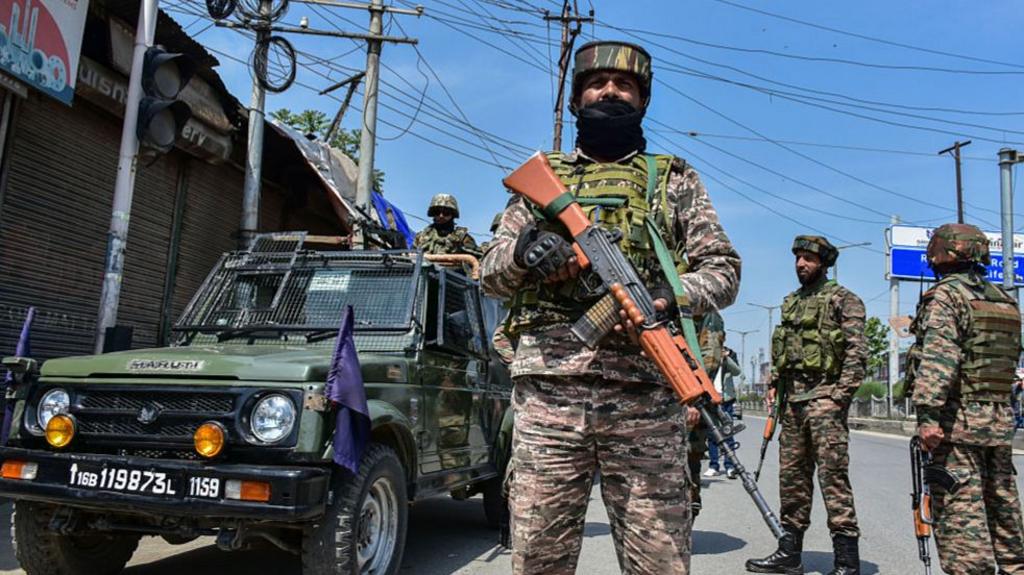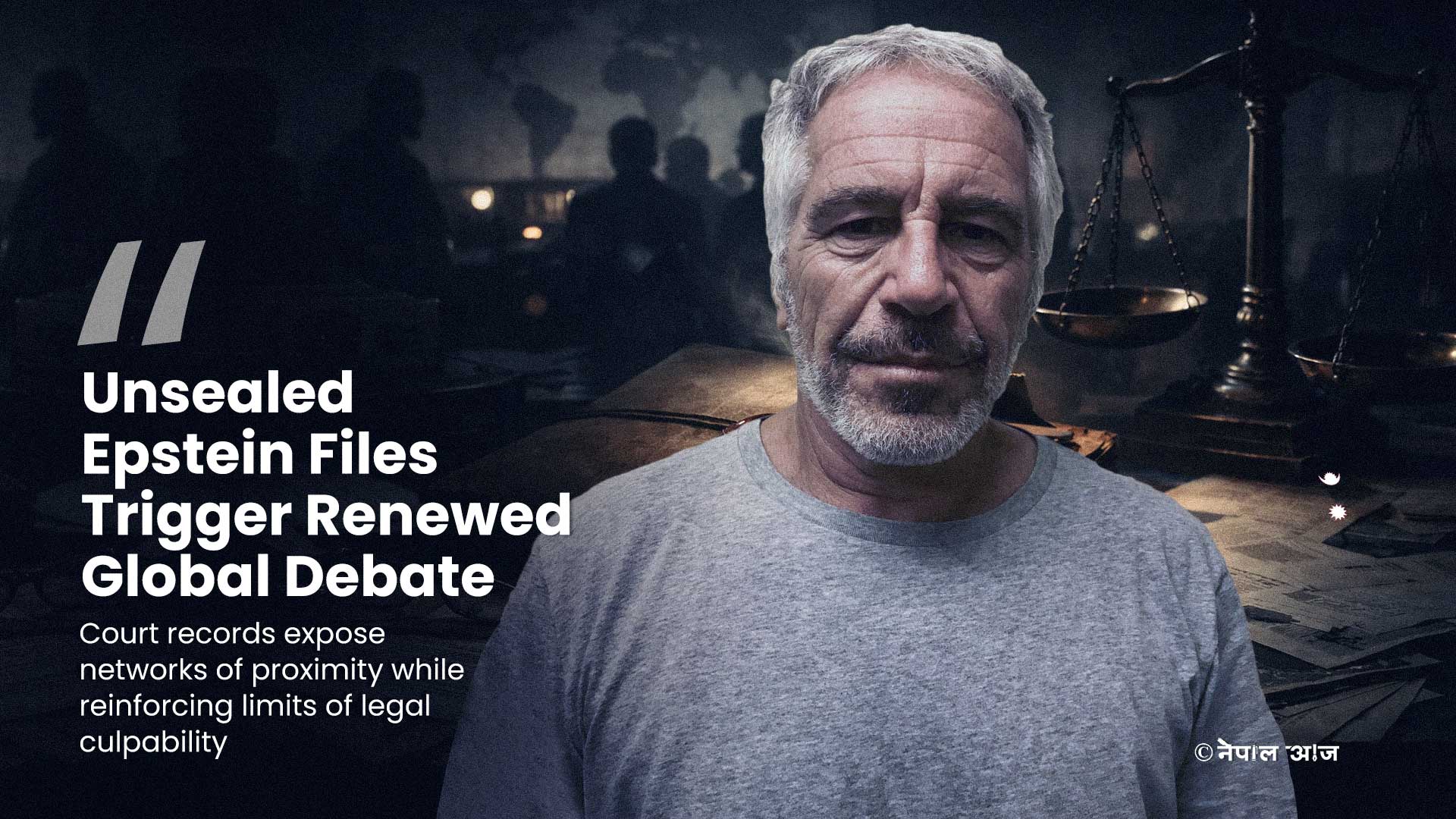Kashmir Tourist Massacre Kills 26, Including Nepali! India Hits Back at Pakistan!

NEW DELHI/SRINAGAR – A horrific terrorist attack targeting tourists in the idyllic Baisaran Valley near Pahalgam, Indian-administered Kashmir, has claimed at least 26 lives, including a Nepali national, plunging regional tensions to a perilous new low. The brutal assault on Tuesday, April 22, described as one of the deadliest on civilians in the region in years, prompted an immediate and severe reaction from India, which suspended a crucial water-sharing treaty with Pakistan and drastically downgraded diplomatic ties, citing Islamabad's alleged "cross-border" links to the violence.
Ambush in 'Mini Switzerland'
The massacre unfolded around 2:45 PM local time in the picturesque Baisaran meadow, often called 'mini Switzerland' for its stunning alpine scenery, accessible mainly by foot or pony. Eyewitnesses reported that at least four gunmen, some allegedly clad in camouflage, emerged from nearby forests and opened indiscriminate fire at close range on dozens of tourists using automatic weapons, including AK-47s and M4 carbines. Some survivors recounted the attackers specifically targeting men after confirming identities.
The attack left a devastating toll: 26 dead and over 17 injured. The victims comprised 24 Indian tourists hailing from diverse states such as Karnataka, Uttar Pradesh, Maharashtra, Kerala, and Andhra Pradesh, alongside a local Kashmiri guide. Tragically, 26-year-old Sudip Neupane from Butwal, Nepal, holidaying with his family, was also killed, while his mother sustained injuries. Among the Indian victims were identified an Indian Air Force Corporal, Tage Hailyang, a State Bank of India employee, and individuals from various walks of life, underscoring the diverse appeal of Kashmir tourism now shattered by violence.
A lesser-known group calling itself the "Kashmir Resistance" or The Resistance Front (TRF) – which Indian security agencies assert is a front for Pakistan-based proscribed outfits Lashkar-e-Taiba (LeT) and Hizbul Mujahideen – claimed responsibility via social media. The group justified the carnage by citing opposition to the alleged settlement of over 85,000 "outsiders," claiming an intent to resist demographic changes in the region.
India's Fury: Treaty Suspended, Ties Cut
India's response was swift and resolute. Prime Minister Narendra Modi, cutting short an official visit to Saudi Arabia, returned to New Delhi and immediately chaired a meeting of the Cabinet Committee on Security (CCS). Following the meeting, India unleashed a barrage of punitive measures against Pakistan:
- Indus Waters Treaty Suspended: In an unprecedented move, India announced the suspension of the 1960 Indus Waters Treaty, a cornerstone pact governing water sharing that survived three previous wars. The suspension holds "until Pakistan credibly and irrevocably abjures its support for cross-border terrorism," potentially allowing India to restrict water flows vital to Pakistan's agriculture.
- Diplomatic Downgrade: Pakistan's Charge d'affaires in New Delhi, Saad Ahmad Warraich, was summoned. The Defence, Military, Naval, and Air Advisors at the Pakistani High Commission were declared persona non grata, given one week to depart India. India will reciprocally withdraw its advisors from Islamabad, and staff strength at both High Commissions will be slashed from 55 to 30 by May 1, 2025.
- Border Closure: The Integrated Check Post (ICP) at Attari-Wagah, the primary land crossing, was shut down immediately.
- Visa Restrictions: Pakistani nationals were barred from using the SAARC Visa Exemption Scheme. Existing visas under this scheme were cancelled, with holders given 48 hours to leave India.
PM Modi condemned the "heinous act" and vowed the perpetrators "will be brought to justice." Defence Minister Rajnath Singh asserted India would trace both the attackers and their "conspirators," while Home Minister Amit Shah visited Srinagar to review security, promising authorities would "come down heavily on the perpetrators." Extensive search operations by security forces are underway in the region.
Pakistan Rejects Blame, Accuses India
Pakistan's Ministry of Foreign Affairs offered condolences but vehemently rejected India's accusations of involvement, reiterating its stance of providing only "moral, political and diplomatic support" to what it frames as the Kashmiri freedom struggle. Pakistani Defence Minister Khawaja Asif accused India of harbouring intentions to exit the Indus Waters Treaty for years and using the attack as a "pretext." Islamabad stated it would convene its National Security Committee to formulate a comprehensive response and has reportedly issued a high alert along the border.
The incident starkly highlights the deep-seated mistrust between the nuclear-armed neighbours. India has persistently accused Pakistan of orchestrating and supporting terrorism in Kashmir – charges Islamabad consistently denies. New Delhi's current actions explicitly tie the diplomatic and water treaty sanctions to Pakistan's alleged failure to curb cross-border terrorism, reflecting a significant hardening of its stance. Some analysts posit the attack, coinciding with high-profile international visits to India and a period of relative calm in Kashmir, represents a desperate attempt by Pakistan-linked elements to destabilize the region and force international engagement amidst Pakistan's growing economic woes and isolation.
Nepal Mourns Citizen, Condemns Terrorism
The death of Nepali citizen Sudip Neupane sent shockwaves through Nepal. Top Nepalese leadership strongly condemned the "barbaric terrorist attack." President Ramchandra Paudel lamented the "senseless and inhumane" violence targeting innocents. Prime Minister K P Sharma Oli expressed deep condolences, stating, "Nepal stands firmly with India & strongly condemn any & all acts of terrorism." Foreign Minister Arzu Rana Deuba confirmed the casualty, expressed profound sorrow, and reaffirmed Nepal's unequivocal stance against terrorism in all forms. The Nepalese government stated it stands in "steadfast solidarity with the government and people of India" and its embassy in New Delhi is actively coordinating with Indian authorities to provide all necessary support to the bereaved family.
Global Condemnation Pours In
The attack elicited widespread international outrage. Leaders including US President Donald Trump, UK Prime Minister Keir Starmer, French President Macron, Russian President Vladimir Putin, Canadian Prime Minister Mark Carney, Israeli Prime Minister Benjamin Netanyahu, Italian Prime Minister Giorgia Meloni, Chinese officials, and leaders from Australia, Qatar, Saudi Arabia, and the EU condemned the violence. UN Secretary-General Antonio Guterres also expressed shock. Numerous nations, notably the US, UK, France, and Israel, explicitly voiced solidarity with India in its fight against terrorism.




![From Kathmandu to the World: How Excel Students Are Winning Big [Admission Open]](https://nepalaaja.com/img/70194/medium/excel-college-info-eng-nep-2342.jpg)


